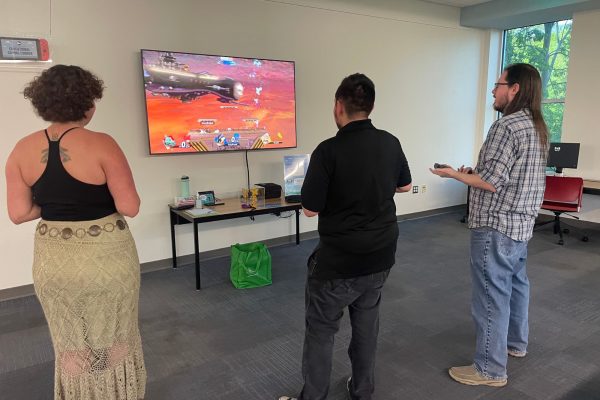Health Services to offer new contraception option next year
March 7, 2018
Health Services is planning to offer the implantable long-acting contraception Nexplanon by next year, Dr. Brian DeLoach, Health Services Medical Director, said.
Nexplanon is a small plastic rod roughly the size of a matchstick that is inserted into the upper arm and releases a progestin hormone to prevent pregnancy.
According to the official Nexplanon website, it is nearly is over 99 percent effective and lasts up to three years. Nexplanon does not protect against sexually transmitted diseases. and using other forms of contraceptive during intercourse is suggested.
Other colleges, such and the University of Georgia and the University of California, currently offer Nexplanon.
Side effects
According to RxList.com, some of the more severe side effects of Implanon are:
- Mood changes
- Depression
- Breast tenderness or pain
- Hair loss
- Weight gain
- Flu-like symptoms,
- Changes in menstrual periods
- Minor bleeding, bruising or scarring at the insertion
- Ectopic pregnancy
Contraceptives currently offered
Health services began offering Intra-uterine device insertions and removals in January 2018, and currently stock a variety of birth control and hormonal contraception through their pharmacy by prescription, including:
- Oral contraceptive pills
- Hormonal contraceptive patch
- Hormonal contraceptive intra-vaginal ring
- Depo-progesterone contraceptive shot
- Male and female condoms
- Intra-uterine device (IUD)
Health Services has also offered Levonogestrel, known by the brand names “Plan B,” Next Choice,” or “My Way,” available without a prescription for several years. It is considered a form of emergency conception that, if taken within 72 hours after unprotected intercourse, may prevent pregnancy.
Student opinion
Mitchell Simons, junior public relations major, already has the Nexaplanon and believes having it on-campus would be beneficial.
Simons first started using Nexaplanon in high school and other than an irregular menstruation cycle, has had no severe side-affects.
“I feel like it’s very effective,” Mitchell said. “Out of the many people I know that are on the Nexaplanon, they have never gotten pregnant. With the pill and other contraceptives, they have.”
Simons said that the greatest benefit to Nexaplanon is not having to think about it.
Simons said, “You don’t have to worry about taking a pill everyday or taking it at a certain time.”
Shiann Sivell, News Reporter, ganewsed@georgiasouthern.edu.








